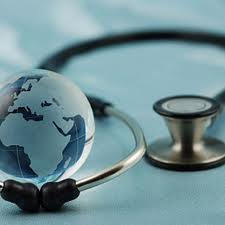In an ever more multicultural society, healthcare providers and patients will often find themselves in need of a linguistic “bridge,” which is why accurate translations and interpretations are critical in the healthcare sector. When lives are at stake and health outcomes depend on the accuracy of the information provided, knowledgeable professional translation services are of the essence.
For Patients’ Wellbeing
Whether interpreting what’s being spoken in a medical clinic or the emergency room, or translating patients’ statements, doctors’ reports, medical records, and other written documents, a patient’s wellbeing relies on accurate, knowledgeable translations.
Particularly in medicine, there are many words specific to the field that an amateur translator may not be familiar with. To protect patients from unintended harm caused by poor translations, it’s best to hire an agency or individual who specializes in professional healthcare/medical translation services.
To Make the Right Decisions in Life-or-Death Cases
Translations need to be accurate so that medical professionals can make the right choices that may make the difference between whether or not a patient survives.
Similarly, patients and their loved ones need to understand what is being asked by medical personnel so that their responses are relevant and useful to the healthcare workers trying to help.
To Avoid Lawsuits
If your clinic fails to secure professional translation and interpretation services for patients who don’t speak English, you put your practice at risk of lawsuits should something go wrong.
Particularly if it’s found that translations were poor and unprofessional, you or your health center might face legal action.
Less Frustration & Higher-Quality Information
Even in everyday medical scenarios and routine health consultations, having access to professional translation services can lead to exchanging better information between all parties involved, leading to less frustration and better customer service.
Accurate Diagnoses & Better Care
Inaccurate translations and interpretations can lead to wrong or misleading diagnoses and the incorrect type of care for a patient.
For example, if the translator doesn’t know the right words for certain medical conditions or symptoms and substitutes a different word, the physician may end up making a wrong diagnosis and begin a treatment plan that turns out to be ineffective (or even dangerous).
Prescription Help
A medical prescription can be complicated. Certain drugs need to be taken with food or water, or at specific times of day. The frequency and quantity of doses that need to be taken can be confusing.
A good, professional translation will provide a patient who struggles with English the right instructions regarding how and when to take prescription drugs.
Just as important, an accurate linguistic interpretation of a patient’s symptoms will give the attending physician the right information to be able to prescribe treatment that will alleviate the patient’s condition.
There may be times when someone seeking medical attention or information and the physicians or other healthcare workers providing that care or knowledge do not speak the same language; as we’ve seen, in such cases it is of the utmost importance that the language provider not only have a command of both languages but also specialize in the terminology proper of this field. Make sure to get the professional services that such sensitive communication requires.







